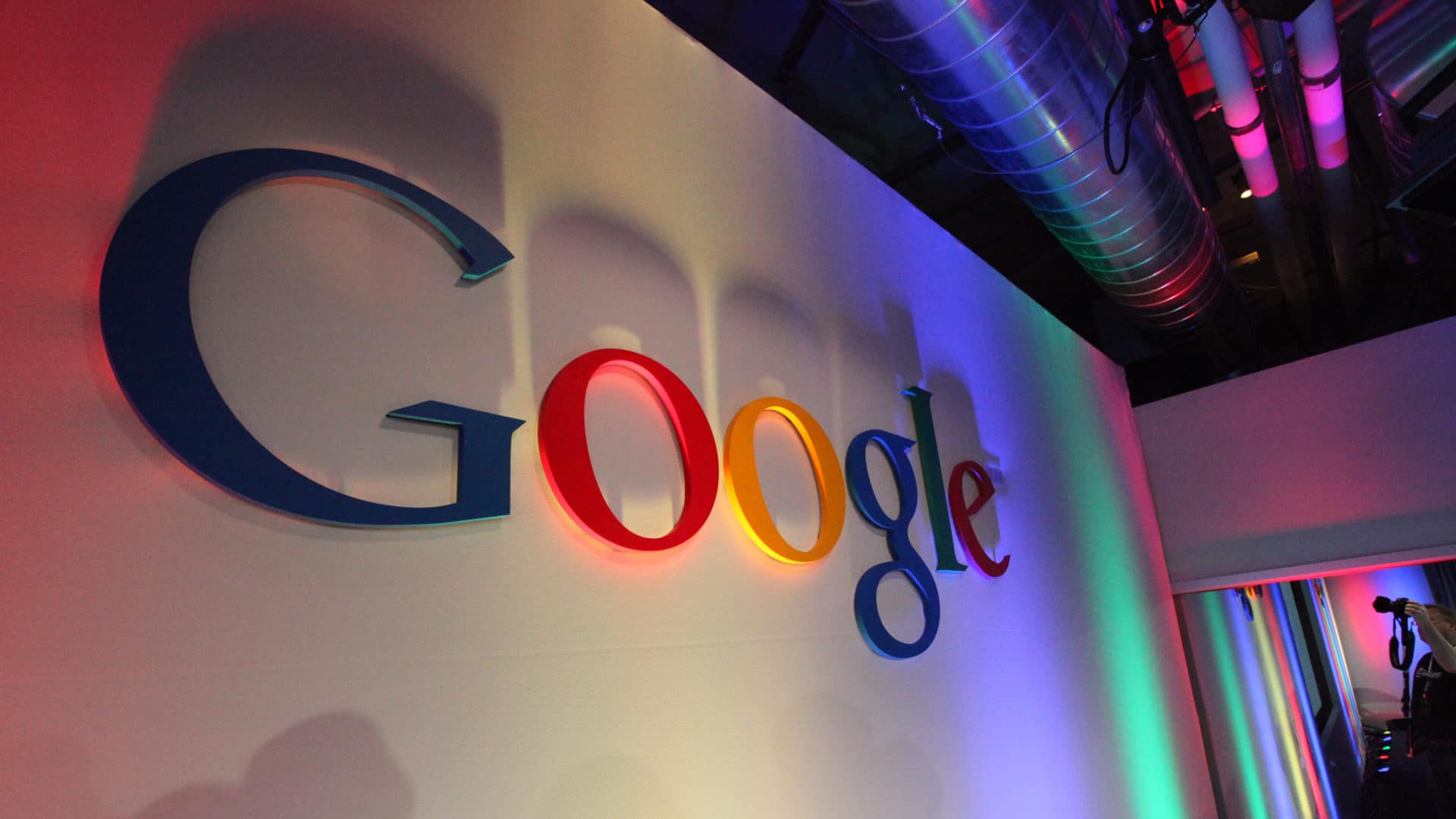On Tuesday, the Department of Justice and 11 U.S. states launched a landmark antitrust case against Google. The case, which could have broader implications for Silicon Valley companies, comes as Google, Facebook, and other technology giants face renewed criticism from advocates and lawmakers on both the left and the right.
For many Americans, the experience of the internet is inseparable from Google. The company’s popular email service, Gmail, has more than 1.5 billion global users, and its flagship search engine is the world’s most visited site. YouTube, which Google acquired in 2006, ranks in second place.
Part of the reason for that success, the Department of Justice alleges, is that “monopolist Google” has unlawfully crushed its competition. The lawsuit argues that Google has engaged in “anticompetitive practices” to maintain dominance in the search market, including paying Apple billions of dollars to be the default search engine on the iPhone.
“This lack of competition harms users, advertisers, and small businesses in the form of fewer choices, reduced quality (including on metrics like privacy), higher advertising prices, and less innovation,” said U.S. Attorney General William Barr in a statement.
Created by two graduate students at the Stanford School of Engineering in the late 1990s, the Google search engine quickly became an integral part of digital life. Google indexes the internet for its users in return for personal data that the company uses to analyze consumer behavior and sell billions of dollars of advertising.
Recently, though, the company has come under fire from some conservative political leaders and commentators, who have accused Google of exhibiting a liberal bias in its fact-checking tools, search results, and advertising policies. In July, a group of right-wing websites, including Breitbart and RedState, alleged that Google briefly removed them from search results.
Many analysts characterize such fears as dubious. But concerns about Google have grown among some progressives, too, who worry that Google, Facebook, and other platforms have used their technical prowess to accumulate unchecked corporate power. Those worries have fed into a broader movement calling for more rigorous antitrust regulation.
While the government case against Google, which resembles a landmark 1998 antitrust lawsuit against Microsoft, could take years to move through the courts, advocates celebrated the move. The complaint, wrote Tim Wu, a legal scholar and influential advocate for antitrust action, “marks the return of the U.S. government to a role that many of us long feared it had abandoned: disciplining the country’s largest and most powerful monopolies.”
Also in the News:
• Covid-19 infection rates are surging in the United States, with disproportionate impact in rural areas. Now, hospitals in some hard-hit parts of the country are overwhelmed with cases. A new report from the Pew Charitable Trusts found that many rural hospitals, facing an influx of Covid-19 patients, are running out of space in their small ICUs. In the Oklahoma City area last week, there were no ICU beds available, and, in Wisconsin, where officials recently opened a 530-bed field hospital to care for overflow patients, one doctor told CBS News that “I feel like we are at the limits of overwhelming the health system right now.” In North Dakota, small hospitals also reported difficulties in getting larger facilities to accept additional patients after the larger facilities said they were also full. The problem has been exacerbated by a steady drumbeat of rural hospital closures across the country; some 11 closures have been reported since March, when the Covid-19 pandemic began to sweep the U.S. In some rural areas, doctors have expressed frustration that resistance to wearing masks and social distancing remains strong, despite the outbreaks. “It’s like every man for themself,” said one North Dakota physician. (NPR)
• A new report from the Centers for Disease Control and Prevention finds that the Covid-19 pandemic has led, directly or indirectly, to the deaths of nearly 300,000 people in the U.S. since February. The CDC considers these as “excess deaths,” or deaths of any cause that are above the number typically expected during the same time period. The report only covers late January to early October, at which time the CDC estimated that 198,081 deaths could be directly attributed to Covid-19, with another 100,947 excess deaths due to other causes. (The Covid-19 death toll in the U.S. has since risen to around 223,000, according to the Johns Hopkins University Covid-19 Dashboard.) The report digs into the demographics of those who have died and finds that young people, Blacks, and Latinos have been hit particularly hard. While the CDC acknowledges limitations to the data that could underestimate both Covid-19 deaths and total expected deaths — including lags in reporting, limitations and differences in models for showing excess death rates, and various caveats on tallying deaths more broadly — independent experts indicate the findings are sound. As Steven Woolf, director emeritus of the Center on Society and Health at Virginia Commonwealth University, told The Washington Post: “The number of people dying from this pandemic is higher than we think. This study shows it. Others have, as well.” Woolf also told The Post that the total number of excess deaths could rise to 400,000 by the end of 2020. (The Washington Post)
• As the U.S. presses forward with its withdrawal from the Paris Climate Agreement, a flood of mayors across the country have committed to picking up the slack, often by establishing their own municipal climate action plans. A report released this week by the Brookings Institution, however, suggests that many of those cities are falling short of their own emissions reduction goals. The report found that, among the 100 largest cities that have adopted climate action plans, only 45 have set specific reduction targets and performed the necessary emissions inventories to establish a baseline for measuring progress. Of those 45, only about a third are meeting their emissions targets. Leading the pack is Los Angeles, which has cut its emissions to roughly 47 percent below 1990 levels. But in some growing cities, including Tucson, Arizona, carbon emissions have increased despite the adoption of municipal climate plans. The report’s authors worry that the Covid-19 pandemic could further hamper cities’ efforts to reduce their carbon footprints, saying it’s plausible that “places that were reluctant to put much priority in climate earlier will be even more reluctant in the midst of economic uncertainty and uncertain priorities.” (E&E News, republished in Science)
• And finally: On Wednesday, the Department of Justice announced a plea agreement with Purdue Pharma. The drugmaker has agreed to an $8.3 billion dollar settlement over civil and criminal investigations into the company’s role in the opioid epidemic. Although the settlement included three felony guilty pleas, no members of the Sackler family, who own Purdue, or any higher-ups will be facing prison time. For years, prosecutors have argued that Purdue helped drive the widespread rise of prescription opioid addiction in the U.S. through targeted advertising for its popular painkiller, OxyContin, and critics of the new settlement have been quick to decry what they feel are insufficient consequences for the executives who orchestrated this marketing campaign. On October 15, nearly three dozen Democratic legislators sent a letter to Attorney General William Barr to ensure the DOJ’s investigation would result in prison time. “Purdue and the Sackler family perpetrated one of the most egregious criminal acts in American history,” they wrote. The DOJ has countered that this deal doesn’t prevent criminal prosecutions of those who oversaw Purdue’s opioid advertising practices in the future. Recent reporting in The New Yorker finds that the Sackler family has found ways to insulate much of its fortune from the consequences of the settlement. The opioid crisis, according to CDC estimates, has killed more than 220,000 people in the U.S. (NPR)
“Also in the News” items are compiled and written by Undark staff. Deborah Blum, Brooke Borel, Lucas Haugen, and Ashley Smart contributed to this roundup.










